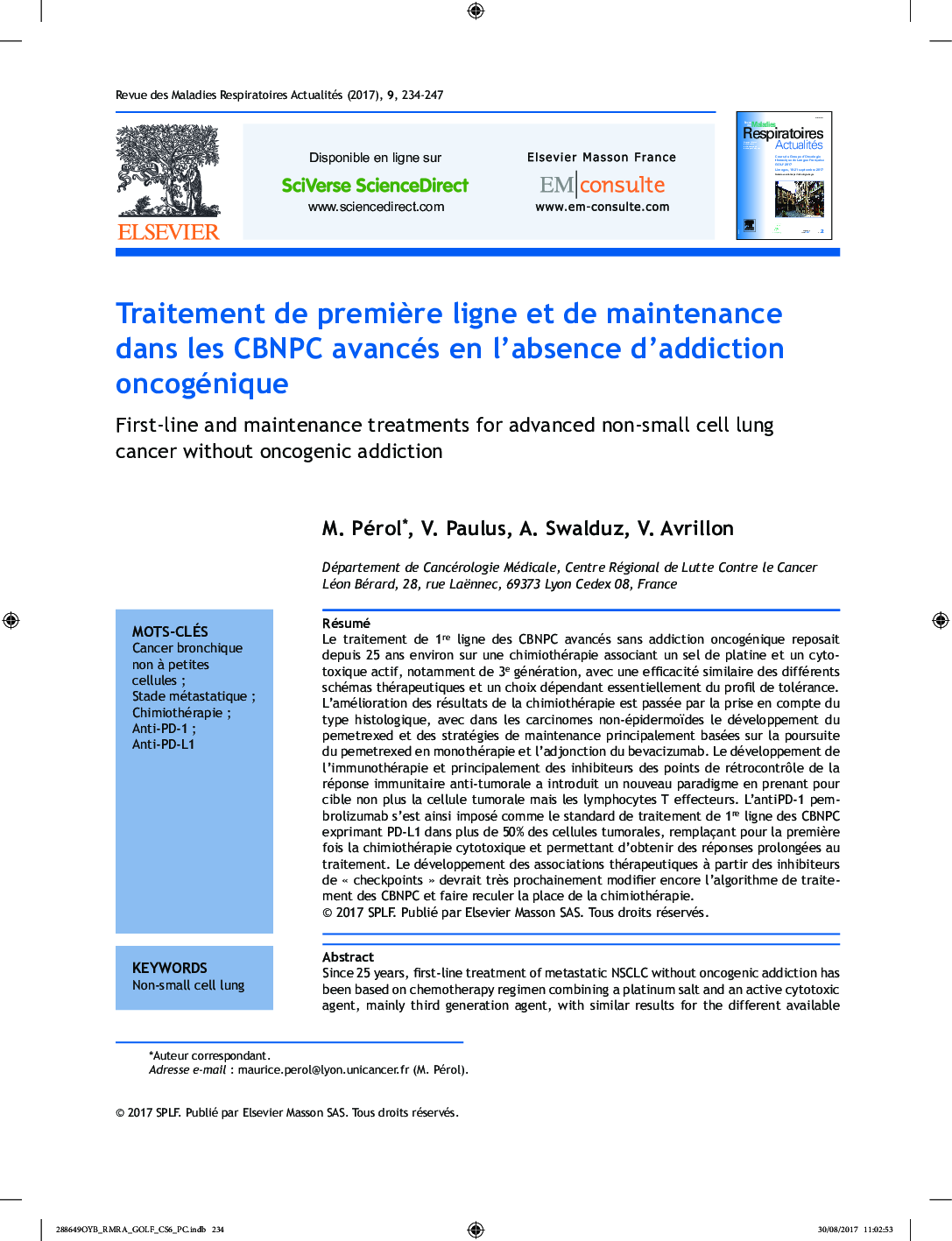| Article ID | Journal | Published Year | Pages | File Type |
|---|---|---|---|---|
| 8820648 | Revue des Maladies Respiratoires Actualités | 2017 | 14 Pages |
Abstract
Since 25 years, first-line treatment of metastatic NSCLC without oncogenic addiction has been based on chemotherapy regimen combining a platinum salt and an active cytotoxic agent, mainly third generation agent, with similar results for the different available schedules which were primarily selected on toxicity profile. Improvement of chemotherapy results derived from taking into account histological subtype, with the development of pemetrexed and maintenance strategies mainly based on pemetrexed continuation as single agent and the addition of bevacizumab to chemotherapy for non-squamous carcinoma. The development of immunotherapy and for the most part checkpoints inhibitors leads to a new paradigm, targeting not anymore directly the cancer cells but the T cells responsible for the destruction of tumour cells. The anti-PD-1 pembrolizumab is thus the standard of care in first-line setting of NSCLC with PD-L1 expression in more than 50% of tumour cells, replacing for the first time cytotoxic chemotherapy and resulting in long-lasting responses. Development of treatment combinations around checkpoints inhibitors might soon lead to further changes in the treatment algorithm of advanced NSCLC and to chemotherapy step back.
Keywords
Related Topics
Health Sciences
Medicine and Dentistry
Pulmonary and Respiratory Medicine
Authors
M. Pérol, V. Paulus, A. Swalduz, V. Avrillon,
